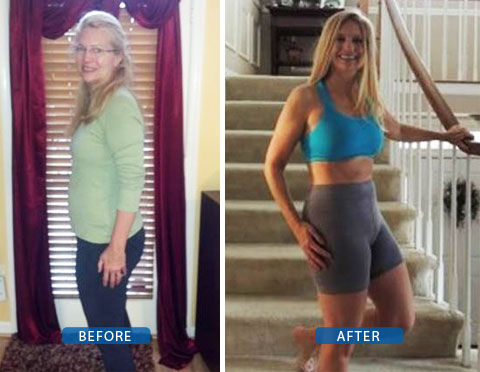There’s no doubt about it…
Most of us lead BUSY lives. But is that a good thing?
Not if you’re so busy that you have to sacrifice getting enough sleep…
New findings reported at the recent American Heart Association Epidemiology and Prevention/Nutrition, Physical Activity and Metabolism 2012 Scientific Sessions, suggest that if you plan on successfully getting fit… you better get some sleep! [1]
This research was sponsored by the National Institutes of Health, the Minnesota Obesity Center and the Mayo Clinic – and set out to see how lack of sleep affects an individual’s eating patterns.
Virend Somers, M.D., Ph.D. one of the study’s authors explains, “We tested whether lack of sleep altered the levels of the hormones leptin and ghrelin, increased the amount of food people ate, and affected energy burned through activity.”
For the study, researchers recruited 17 healthy young men and women, and divided them into two groups.
Group one slept as normal.
Group two slept only two-thirds of their normal sleeping time (so if they normally slept for nine hours a night, while under observation they slept only six).
The study lasted eight nights and other than the length of sleep, the participants were told to go about their days as normal… eating whatever they would normally eat.
Here’s what the researchers found…
Even though the folks in group two ended up sleeping just 1 hour and 20 minutes less than the control group (group one), they ate an average of 549 more calories each day!
Another finding was that the amount of energy used for activity didn’t change between the two groups, which suggests that sleeping less doesn’t burn more calories (due to being awake longer).
Bottom line: Even sleeping just 90 minutes less than what your body needs can cause you to overeat.
So if you want a quick and easy tool to use in the battle of the bulge – get enough sleep… chances are it will cause you to eat less, and burn some fat as a result!
More larger-scale studies need to be done to fully explore the effects of sleep on obesity and metabolism, but this study gives us a good idea of what happens when you don’t let your body fully rest.
If you don’t sleep enough due to your work schedule, maybe find some time to take a few quick “cat” naps.
But if you’re not getting enough sleep due to insomnia (a lot more common), then here are some quick tips you can start using right away that can help you fall asleep faster, and get some much needed rest:
1. Limit caffeine to morning hours. Stop drinking caffeine at least four to six hours before bedtime. Or if you think caffeine is really interfering with your sleep, keep your coffee drinking to just the morning hours. And don’t forget that certain sodas and teas contain caffeine, so avoid those in the afternoon as well.
2. Have a glass of milk. Drink a glass of warm milk before bed. It will help you feel sleepy, since it contains high amounts of tryptophan, a sleep-promoting amino acid.
3. Breathe. Wind down before going to bed by doing some deep breathing. Breathe in for a count of 4… hold it for at least a count of 2… then exhale again for a count of 4. Repeat 5 – 10 times and you’ll instantly start to feel the relaxation response in your body.
4. Keep the room cool. Temperatures above 75 degrees and below 54 degrees Fahrenheit can disrupt sleep. So make sure you keep the room at a temperature in that middle range that feels right to you.
So there you have it. Make sure you get enough sleep every night. And remember that getting enough sleep is just one piece of the weight loss puzzle. To truly transform your body, you need to combine all the elements of proper nutrition, exercise and rest.
Learn how this 47 year old lost 6% body fat and 20lbs. |
|
 |
|
| Heidi had a bad back, arthritis and carpal tunnel. She lost 6% of her body fat in the first 6 weeks and lost a total of 20 lbs (and has kept it off!). Best part, she had her glass of red wine with dinner every night and still does! | |
| Watch More Video Testimonials » | |
Leave Your Response